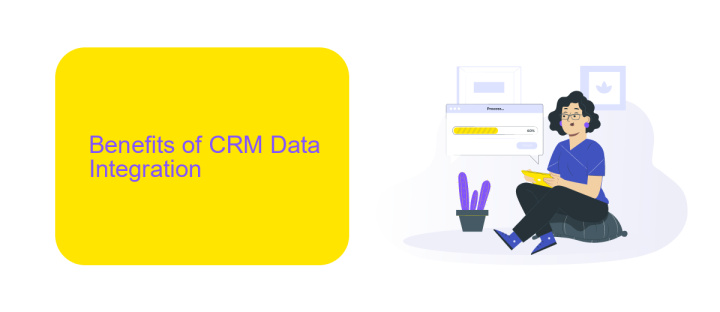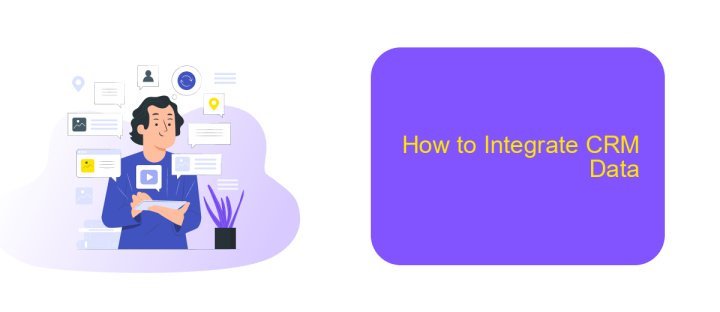CRM Data Integration
Customer Relationship Management (CRM) data integration is crucial for businesses aiming to streamline operations and enhance customer interactions. By seamlessly merging data from various sources, companies can gain a comprehensive view of customer behaviors and preferences. This integration not only boosts efficiency but also drives informed decision-making, ultimately leading to improved customer satisfaction and business growth.
What is CRM Data Integration?
Benefits of CRM Data Integration

Integrating CRM data offers numerous benefits that can significantly enhance business operations. One of the primary advantages is the ability to centralize customer information, providing a single source of truth. This centralization ensures that all departments have access to the same data, leading to improved collaboration and more informed decision-making. Additionally, it streamlines processes by automating data entry and reducing the risk of errors, saving time and resources.
Another key benefit is the enhanced customer experience. With integrated CRM data, businesses can gain a comprehensive view of customer interactions and preferences, allowing for more personalized communication and targeted marketing efforts. Tools like ApiX-Drive facilitate seamless integration between various platforms and CRMs, making it easier to synchronize data without the need for complex coding. This not only boosts efficiency but also helps in maintaining data accuracy across systems, ultimately leading to better customer satisfaction and loyalty.
Challenges of CRM Data Integration

Integrating CRM data can be a complex and challenging task for businesses. One of the primary challenges is ensuring data consistency across various platforms. Disparate data sources can lead to discrepancies, making it difficult to maintain a single source of truth. Additionally, the integration process often requires significant technical expertise, which can be a barrier for companies without dedicated IT teams.
- Data consistency and accuracy issues.
- Technical complexity and expertise requirements.
- High costs associated with integration tools and services.
- Data security and compliance concerns.
- Scalability and performance challenges.
To mitigate these challenges, businesses can leverage integration platforms like ApiX-Drive. ApiX-Drive simplifies the integration process by providing a user-friendly interface and pre-built connectors for various CRM systems. This reduces the need for extensive technical knowledge and helps ensure data consistency. Additionally, ApiX-Drive offers robust security features to address data protection and compliance requirements, making it a valuable tool for businesses looking to streamline their CRM data integration efforts.
How to Integrate CRM Data

Integrating CRM data can significantly enhance your business operations by providing a unified view of customer interactions. The first step in this process is to identify the data sources you need to integrate, such as sales, marketing, and customer service platforms. Understanding the data flow and ensuring data consistency across systems is crucial for a successful integration.
Next, choose the right tools and methods for data integration. There are various approaches, including manual data entry, batch data processing, and real-time data syncing. Selecting the appropriate method depends on your business needs and the complexity of your data.
- Identify and map data sources.
- Choose integration tools (e.g., ApiX-Drive).
- Set up data synchronization schedules.
- Test and validate data integration.
ApiX-Drive is a powerful tool that simplifies the integration process by allowing you to connect various applications and automate data transfers. By using such tools, you can minimize errors and ensure that your CRM system is always up-to-date, providing valuable insights for better decision-making.
Best Practices for CRM Data Integration
Effective CRM data integration requires a strategic approach to ensure seamless data flow and accuracy. Begin by identifying key data points and establishing a clear integration plan. Prioritize data quality by cleaning and standardizing your datasets before integration. Regularly update and validate data to maintain consistency. Utilize automated tools like ApiX-Drive to simplify the integration process and reduce manual errors. These tools can help synchronize data across multiple platforms, ensuring real-time accuracy and efficiency.
Security is paramount in CRM data integration. Implement robust security protocols to protect sensitive information during transfer and storage. Regularly audit your integration processes to identify and rectify any vulnerabilities. Additionally, ensure compliance with data protection regulations such as GDPR or CCPA. By following these best practices, you can achieve a seamless and secure CRM data integration, enhancing your business operations and customer relationship management.
FAQ
What is CRM data integration?
Why is CRM data integration important for businesses?
What are the common challenges in CRM data integration?
How can businesses automate CRM data integration?
What is the role of ApiX-Drive in CRM data integration?
Routine tasks take a lot of time from employees? Do they burn out, do not have enough working day for the main duties and important things? Do you understand that the only way out of this situation in modern realities is automation? Try Apix-Drive for free and make sure that the online connector in 5 minutes of setting up integration will remove a significant part of the routine from your life and free up time for you and your employees.

